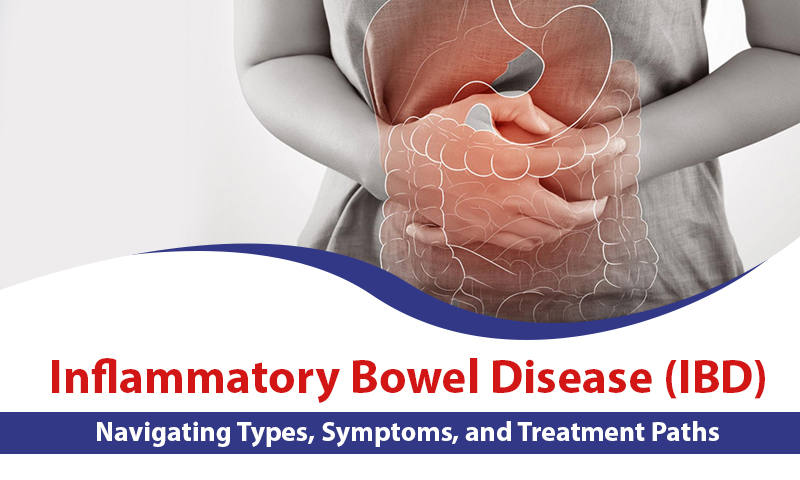Inflammatory Bowel Disease (IBD): Navigating Types, Symptoms, and Treatment Paths

Balancing Digestion: The Impact of Lifestyle Factors on Your Gut Health
October 3, 2023
The Gut-Brain Connection: Navigating Digestive Health for Mental Well-being
November 13, 2023Living with Inflammatory Bowel Disease (IBD) poses unique challenges, impacting millions globally. Drawing upon over a decade of collaboration with leading gastroenterologists in our city, this comprehensive guide aims to shed light on the nuances of IBD, its types, symptoms, and the diverse treatment options available.
Inflammatory Bowel Disease Overview
In the complex landscape of gastrointestinal disorders, IBD stands out for its chronic and relapsing nature. It encompasses two primary forms – Crohn's disease and Ulcerative Colitis. Crohn's can affect any part of the digestive tract, while Ulcerative Colitis primarily targets the colon and rectum. Understanding these distinctions is crucial for early detection and effective management.
Types of IBD
Understanding the characteristics of Crohn's disease and Ulcerative Colitis is fundamental to navigating the complexities of IBD. Crohn's exhibits a "skip pattern" of inflammation, impacting different sections of the digestive tract, while Ulcerative Colitis typically involves continuous inflammation in the colon.
Symptoms
Recognizing the symptoms of IBD is pivotal for timely intervention. Chronic diarrhea, abdominal pain, weight loss, and fatigue are common indicators. However, the manifestation of symptoms can vary widely among individuals.
Diagnosis
Swift and accurate diagnosis sets the stage for effective IBD management.
Gastroenterologists leverage various diagnostic tools, including endoscopy, imaging tests, blood tests, and stool tests, to pinpoint the condition's nature and severity.
Treatment Options
Managing IBD requires a multifaceted approach. Medications, lifestyle adjustments, and, in severe cases, surgical interventions are considered.
A personalized treatment plan, tailored to your unique circumstances, is vital.
Living with IBD
Cultivating a supportive lifestyle is paramount for those navigating IBD. From dietary modifications to stress management techniques, adopting a holistic approach enhances overall well-being.
FAQs: Frequently Asked Questions about IBD
Empowered with insights into IBD's types, symptoms, and treatment avenues, you can embark on a journey toward better digestive health. Your gastroenterologist at GastroVadodara is your ally, offering tailored guidance for your unique circumstances. Stay informed, stay empowered.


